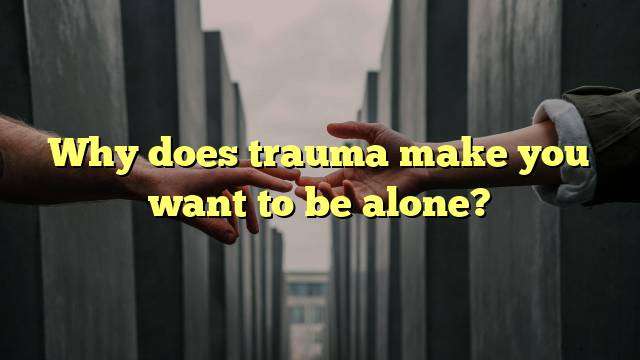The Effects of Trauma
Trauma can leave a lasting impact on our lives and can manifest in many forms. The experience of trauma can be emotionally, psychologically, and physically damaging and can lead to a range of symptoms. One of the most common responses to trauma is the need to be alone. This can be a conscious or unconscious choice, as survivors of trauma may feel overwhelmed and as if they need to be alone to process what they have experienced.
The Need to Isolate
The need to isolate is a common response to trauma and can be seen in many survivors. Isolating oneself may be a conscious or unconscious choice, as survivors may seek to avoid negative reactions or further attempts to explain their feelings. The need to isolate can be driven by a sense of shame, guilt, and fear, as survivors may feel that they are not worthy of help or support. They may also fear judgment from others or feel that they cannot adequately express the emotions that they are experiencing.
The Benefits of Isolation
Although self-isolation can be damaging in the long term, in the short term it can provide some relief for trauma sufferers. Isolating oneself can be a way to protect one’s emotional and psychological state, as it can provide a sense of safety and security. It can also be a way to avoid negative reactions from others and the feeling of being overwhelmed by the emotions associated with the trauma.
The Drawbacks of Isolation
Although self-isolation can be beneficial in the short term, in the long term it can lead to further psychological and emotional issues. Isolating oneself can lead to an increased sense of loneliness and feelings of worthlessness, as well as feelings of guilt and shame. It can also lead to a decrease in self-esteem and self-confidence, as well as depression and anxiety.
How to Cope with Isolation
The best way to cope with the need to isolate is to seek help from professionals. Talking to a therapist can provide a safe space to express emotions and process trauma in a healthy and supportive way. Additionally, seeking support from family and friends can also be beneficial, as it can provide a sense of connection and understanding. It can be helpful to reach out to others and to talk about one’s experiences, as this can help to reduce feelings of isolation.
Conclusion
The need to isolate oneself is a common response to trauma and can be a conscious or unconscious choice. While self-isolation can provide some relief in the short term, in the long term it can cause further psychological and emotional issues. The best way to cope with the need to isolate is to seek help from professionals, as well as to reach out to family and friends for support.



